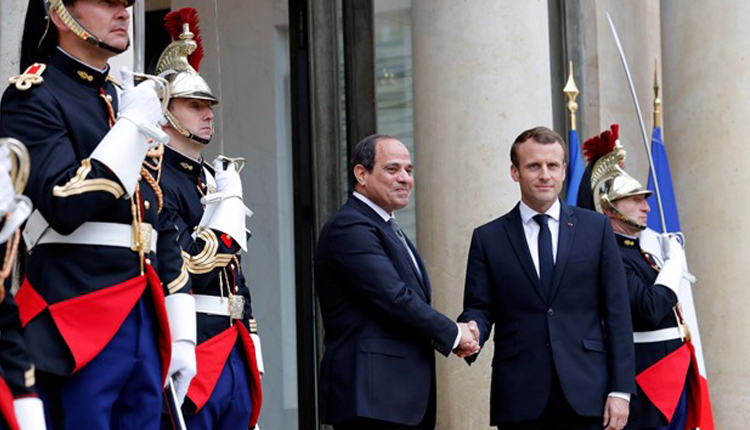Egypt’s Sisi in talks with Macron over Libya’s developments
Egypt’s President Abdel Fattah al-Sisi had a phone call with French President Emmanuel Macron on Saturday that tackled the current developments in Libya, a statement by the presidency said.
Presidency spokesman Bassam Rady said in the statement that Macron affirmed his keenness to exchange views and visions with Sisi in this regard in light of the Egyptian pivotal role in the region, Ahram Online reported.
From his side, Sisi affirmed Egypt’s consistent strategic stance regarding the Libyan crisis, which aims at restoring the pillars and institutions of the Libyan nation state, ending the chaos of the spread of criminal groups and terrorist militias, and giving top priority to combating terrorism and restoring safety and stability.
Egypt’s consistent strategic stance towards the Libyan crisis also includes, according to El-Sisi, putting an end to all foreign interference in Libya’s domestic affairs that would further exacerbate the current situation, which constitutes a threat to the security and stability of the entire Middle East and Mediterranean region.
The two presidents agreed on the need to intensify bilateral cooperation in this regard in the coming period to find a political solution, especially by supporting relevant international efforts as well as implementing the outputs of the Berlin process without any external interference in this regard, Rady noted.
The phone call also dealt with boosting bilateral cooperation “in light of the growing level of these relations during the recent period,” the statement concluded.
The phone call comes as Libya continues to witness a tug of war over power, with clashes between the eastern-based Libyan National Army (LNA) forces, which has been waging a campaign for over a year trying to capture the capital, commanded by Khalifa Haftar, and from the other side the UN recognised Government of National Accord (GNA).
Libya has drawn in regional and global powers with what the United Nations has called a huge influx of weapons and fighters in violation of an arms embargo.
Recently, according to Reuters, the GNA has with extensive Turkish backing pushed Haftar back from his foothold in southern Tripoli and from some other parts of the northwest.
However, on 23 May, Haftar announced in a two-minute speech that his forces will continue fighting forces loosely allied with the GNA in Tripoli, saying they “will fight and fight” against what he called “Turkish colonialism.”


